Photographs: Andrea Comas/Reuters Rediff Business Desk
According to Investopedia, 'great money managers are like the rock stars of the financial world'.
The greatest investors not only make a fortune off their success but they also help millions achieve similar returns.
Here, we present 10 greatest investors of the world. Check them out...
1. WARREN BUFFETT
Buffett made an enormous fortune from astute investments, particularly through his company Berkshire Hathaway, of which he is the largest shareholder and CEO.
Berkshire Hathaway has about $2 billion in holdings.
With an estimated net worth of about $46 billion, the 79-year-old Buffett, is often called the 'Sage of Omaha'.
As a child, Buffett was a paper boy for the Washington Post and attempted to cover more than one route at the same time. Showing a spontaneous talent for making money, Buffett also started earning that early by collecting and selling lost golf balls.
He even started playing the stock market with one of his sisters at 11. At 12, he was betting on horses and by high school he started a business (pinball machines) with a friend, which earned him $50 a week.
Not only did he own a business by the time he graduated, he also had bought himself 40 acres of farmland in Nebraska.
Buffett was strongly influenced by economist Benjamin Graham's theory that it is wise to look for stocks of companies which are undervalued as they will probably prosper with a little time.
Buffett started his investment company, the Buffett Partnership, at 25, using $5,000 of his own funds and collecting $100,000 from friends and family. One of the smartest moves made by Buffett's company at that time was to invest in American Express.
In June 2006, Buffett made a commitment to give away his fortune to charity, with 85 per cent of it ($30 billion) going to the Bill and Melinda Gates Foundation. Buffett's donation was the largest act of charitable giving in the world's history.
. . .
World's 10 greatest investors
Image: John C Bogle2. JOHN C BOGLE
Bogle is the founder and retired CEO of The Vanguard Group. Under his leadership, the company grew to be the second largest mutual fund company in the world.
Bogle has won a number of accolades and served on the boards of various for-profit and non-profit organizations. He continues to be active in The Vanguard Group.
Bogle is famous for his insistence in numerous media appearances and in writing on the superiority of index funds over traditional actively-managed mutual funds.
He attended Blair Academy on a full scholarship, earned his undergraduate degree from Princeton University in 1951, and attended evening and weekend classes at the University of Pennsylvania.
After graduation, he went to work for Walter L Morgan at Wellington Management Company.
After a distinguished career culminating with the position of chairman at Wellington, he founded Vanguard in 1974.
Bogle and his wife Eve had six children and are grandparents. They reside in Bryn Mawr, Pennsylvania.
World's 10 greatest investors
Image: Peter LynchPhotographs: Brian Snyder/Reuters
3. PETER LYNCH
Lynch, an accomplished Wall Street stock investor, is often said to be one of the best stock-pickers in the world. At present, he is a research consultant at Fidelity Investments.
Peter Lynch coined some popular mantras of modern investing strategies. His most famous principle is: 'Invest in what you know,' popularising the economic concept of 'local knowledge.'
Before joining Fidelity as a stock analyst, Lynch served in the United States Army for a couple of years and studied at Boston College and at the Wharton School of the University of Philadelphia.
He was born on January 19, 1944. Lynch was hired as an intern with Fidelity Investments in 1966. Lynch's greatest successes occurred in a vast array of stocks, including Fannie Mae, Ford, Philip Morris, MCI, Volvo, General Electric, General Public Utilities, Student Loan Marketing, Kemper, and Loews.
Lynch has written (with co-author John Rothchild) three essays on investing, including One Up on Wall Street, Beating the Street, and Learn to Earn.
The last one was written for teenagers. Lynch also wrote a series of investment articles for Worth magazine.
Currently Lynch is concentrating on philanthropy. The Lynch Foundation, which had $74 million in assets in 2003, supports education, religious organisations, cultural and historic organisations, hospitals and medical research.
World's 10 greatest investors
Image: Julian Robertson.4. JULIAN ROBERTSON
Julian Robertson rose to fame as founder and managing partner of Tiger Management Corporation, one of the largest and most successful hedge fund groups ever created. Here is more about this great investor. . .
Robertson turned $8 million in start-up capital in 1980 into over $22 billion in the late 1990s, though that was followed by a fast downward spiral that ended with the funds' closing in 2000.
The Tiger funds reached a peak of $22 billion in assets in 1998. However, because of poor stock picking, Robertson suffered large losses at the end of the decade.
When the Standard and Poor's 500-stock index climbed 21 per cent in 1999, the Tiger funds declined 19 per cent.
Robertson grew up in Salisbury, Maryland, where he attended public schools before enrolling in Episcopal High School in Alexandria, Virginia.
He received his BS in Business Administration from the University of North Carolina at Chapel Hill in 1955, and was inducted into the Order of Gimghoul.
Following two years of service in the United States Navy, Robertson joined Kidder Peabody & Company in 1957 as a sales trainee.
He was promoted through the ranks at Kidder Peabody, becoming in 1974 chairman and chief executive officer of Webster Management Corporation, a subsidiary of the firm. Six years later, he founded Tiger Management.
Julian Robertson's service to his alma mater includes tenure as executive-in-residence at the Kenan-Flagler Business School and membership on the Board of Visitors, the Board of Directors of the General Alumni Association (1965-67), and Kenan-Flagler's Board of Visitors. He received the Board of Trustees' Davie Award in 1992.
In New York, he has served as chairman of the Cancer Research Institute, is a member of the executive committee of Lincoln Center, and is a trustee of The Rockefeller University, the Wildlife Conservation Society, and the Cathedral Church of St. John the Divine.
Today, he focuses his talent and energy on philanthropy. In 1989, he established the Tiger Foundation to provide financial support to non-profit organisations serving New York City's neediest families, and to encourage philanthropy among Tiger Management's investment staff.
World's 10 greatest investors
Image: Michael Steinhardt.Photographs: Brendan McDermid/Reuters
5. MICHAEL STEINHARDT
Michael Steinhardt is one of the most successful investors in the history of Wall Street and also widely known for his philanthropic activities, particularly in the Jewish community.
He is the co-founder of Birthright Israel, a programme whose mission is to provide the means for every young Jewish person of the Diaspora to visit Israel.
Steinhardt is the founder of Steinhardt Partners, whose hedge fund produced an average annual return of 24 per cent, netting him a personal fortune reportedly worth over $500 million.
He started with distinguished co-investors -- William Salomon, former managing partner of Salomon Brothers and Jack Nash, founder of Odyssey Partners.
Steinhardt didn't exactly go out with a bang. He ended his illustrious hedge fund career in 1995, a year after suffering big losses.
Not many know that demi-billionaire hedge fund operator's father, Sol Frank 'Red' Steinhardt, was a compulsive high-stakes gambler and colorful New York nightclub patron.
Steinhardt decided to throw light on the dark side of his father in his autobiography No Bull: My Life In and Out of Markets.
Steinhardt is a self-proclaimed atheist who devoted his later life to the welfare of American Jews and the State of Israel.
Sol was also convicted on charges of buying and selling stolen jewellery and was sentenced to five to 10 years in prison on each of two felony counts.
Visiting his father in prison, Steinhardt wrote, was an 'obligation' since Sol had paid for Steinhardt's education at the University of Pennsylvania's Wharton School. He recalled the 'desolate miserable grey visits, where his father would vehemently insist that he was innocent.'
Quite early in his life, Sol gave his son envelopes stuffed with $10,000 in $100 bills to put in the stock market. This helped Steinhardt build his net worth to $200,000 that early. In effect, his father was Steinhardt's first investment client.
Steinhardt had his own run in with the law. He and his firm were investigated, with Salomon Bros. and Caxton Group, for allegedly attempting to corner the market for short-term Treasury notes in the early 1990s.
He paid 75 per cent of the $70 million in civil fines that were part of settling the case with the Securities and Exchange Commission and Justice Department -- a mere fraction of the $600 million his hedge fund made on the Treasury positions.
At heart, Steinhardt is a compulsive gambler like his father.
World's 10 greatest investors
Image: George Soros.Photographs: Jonathan Ernst/Reuters
6. GEORGE SOROS
George Soros is the founder and chairman of a network of foundations that promote the creation of open, democratic societies based on the rule of law, market economies, transparent and accountable governance, freedom of the press and respect for human rights.
For someone who started his life as a railroad porter, story of Soros' life is stuff dreams are made of.
Born in Budapest, Hungary, in 1930, his father was taken prisoner during World War I and eventually fled from captivity in Russia to reunite with his family in Budapest.
Soros was 13 when Adolf Hitler began deporting the country's Jews to concentration camps. He emigrated to England in 1947 and earned his living by working as a railroad porter and a restaurant waiter.
He graduated in 1952 from the London School of Economics and obtained an entry-level position with an investment bank.
At the London School of Economics, Soros was much influenced by philosopher Karl Popper.
The latter's critique of totalitarianism, The Open Society and Its Enemies, in which he maintained that societies can only flourish when they allow democratic governance, freedom of expression, a diverse range of opinion and respect for individual rights paved Soros' future course of life.
In 1956, Soros immigrated to the US wherein he worked as a trader and analyst until 1963. During this period, he adapted Popper's ideas to develop his 'theory of reflexivity,' a set of ideas that seeks to explain the relationship between thought and reality.
Soros began to apply his theory to investing and concluded that he had more talent for trading than for philosophy. In 1967, he helped establish an offshore investment fund.
In 1973, Soros set up a private investment firm that eventually evolved into the Quantum Fund and became the source of Soros' fortune.
In 1979, Soros provided funds to help black students attend the University of Cape Town in Apartheid South Africa.
Soon he created a foundation in Hungary to support culture and education and the country's transition to democracy.
Soros distributed funds to the underground Solidarity movement in Poland, Charter 77 in Czechoslovakia and the Soviet dissident-physicist Andrei Sakharov.
In 1982, Soros named his philanthropic organisation the Open Society Fund, in honour of Karl Popper, and began granting scholarships to students from Eastern Europe.
Most recently, Soros provided $50 million to support the Millennium Villages initiative, which seeks to lift some of the least developed villages in Africa out of poverty.
In 1993, Soros created the Open Society Institute, which supports the Soros foundations working to develop democratic institutions throughout Central and Eastern Europe and the former Soviet Union.
World's 10 greatest investors
Image: John Templeton.7. JOHN TEMPLETON
John Templteton is the pioneer of the global mutual fund industry. No one before him had heard of investing overseas. Today, the Templeton Group's combined assets stand at $25 billion plus. Know more about this great investor...
Templeton earned his billions by introducing globally diversified mutual funds. He founded the investment fund Templeton Growth Ltd in 1954.
Beginning a Wall Street career in 1937, Templeton created some of the world's largest and most successful international investment funds. Termed 'arguably the greatest global stock picker of the century' by Money Magazine (January 1999), he sold his various Templeton funds in 1992 to the Franklin Group for $440 million.
Through the John Templeton Foundation, based in Radnor, Pennsylvania, he donates about $40 million a year -- especially to projects, college courses, books and essays on the benefits of cooperation between science and religion.
One of Templeton's earliest investors was Leroy Paslay. He gave him $65,500 to invest in 1954. Forty years later, Paslay was worth over $37 million.
After making billions through his innovative approach to investing, Templeton has become one of the world's greatest philanthropists. In 1987, he founded the $14 billion John Templeton Foundation.
He was born in the town of Winchester, Tennessee. He attended Yale University and graduated in economics in 1934. He was a Rhodes Scholar to Balliol College, University of Oxford.
Now a British citizen living in Nassau, the Bahamas, Templeton was knighted by Queen Elizabeth II in 1987. He is one of the creators of the world's richest award, the $1 million-plus Templeton Prize for Progress Toward Research or Discoveries about Spiritual Realities, presented annually in London since 1972.
World's 10 greatest investors
Image: Carl Icahn speaks at a conference in New York.Photographs: Chip East/Reuters
8. CARL CELIAN ICAHN
Born on February 16, 1936, Icahn is an American financier, corporate raider, and private equity investor.
Icahn began his career on Wall Street in 1961.
In 1968, he formed Icahn & Co., a securities firm that focused on risk arbitrage and options trading.
Icahn is a director of Blockbuster Inc., and the Chairman of Imclone, Icahn Enterprises LP, XO Communications Inc, WestPoint Home Inc., Cadus, and American Railcar Industries.
Icahn and his affiliates currently own majority positions in firms including ACF Industries, American Railcar Industries, XO Communications, Philip Services, and NYSE-listed Icahn Enterprises.
Recently, Icahn was interested in the takeover of Yahoo! and the ousting of Jerry Yang from his position as CEO to allow Microsoft to purchase the web company.
World's 10 greatest investors
Image: Benjamin Graham.9. BENJAMIN GRAHAM
Graham was an American economist and professional investor. He is universally recognised as the father of two fundamental investment disciplines -- security analysis and value investing.
The essence of Graham's value investing is that any investment should be worth substantially more than an investor has to pay for it.
Graham wrote that investment is most intelligent when it is most businesslike.
His book, Security Analysis, with David Dodd, was published in 1934 and has been considered a bible for serious investors.
Graham believed in fundamental analysis and sought out companies with strong balance sheets, or, those with little debt, above-average profit margins, and ample cash flow.
Another book penned by him, The Intelligent Investor, published in 1949 is, according to Warren Buffett, 'the best book about investing ever written.'
Graham excelled as an investment manager and financial educator. He died in 1976.
World's 10 greatest investors
Image: Thomas Rowe Price, JR.10. THOMAS ROWE PRICE, JR
Thomas Rowe Price, Jr. (1898-1983) was the founder of T Rowe Price. Price entered the world of Wall Street Investing in the 1920s.
Though Price received a bachelor's degree in chemistry from Swarthmore College, he is best known for developing the growth stock style of investing, for which he has been called 'the father of growth investing'.
Price believed that investors could reap a lot of benefits by investing in well-managed companies.
T Rowe Price owed much of its success to its founder's approach, proprietary research to guide investment selection and diversification.

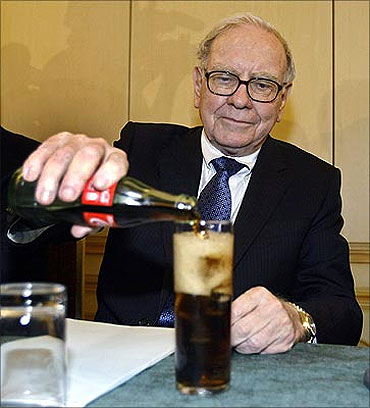
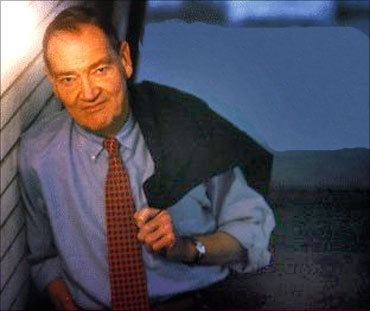
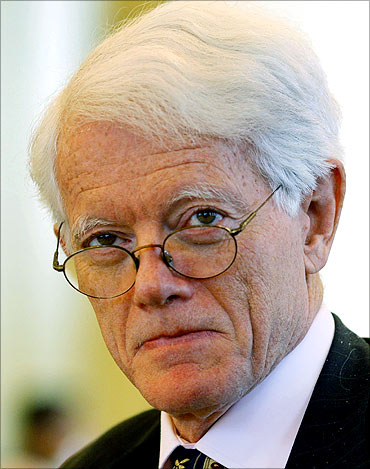
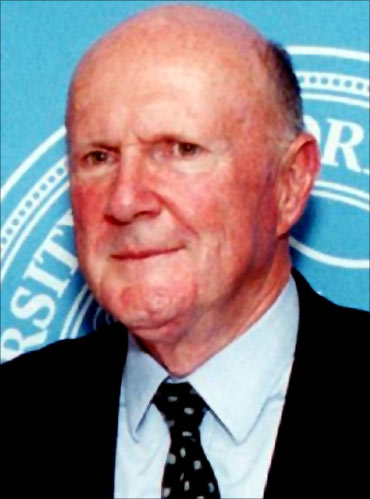
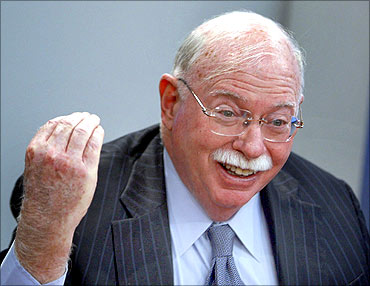
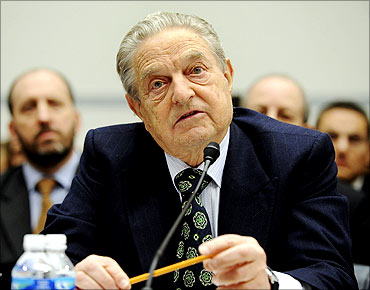
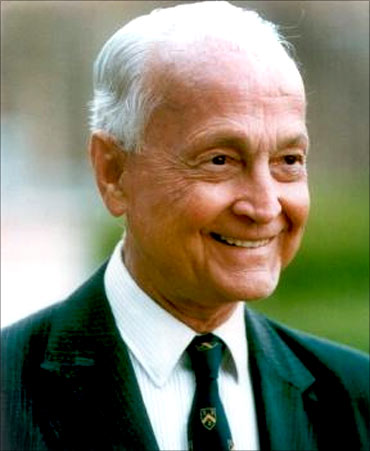
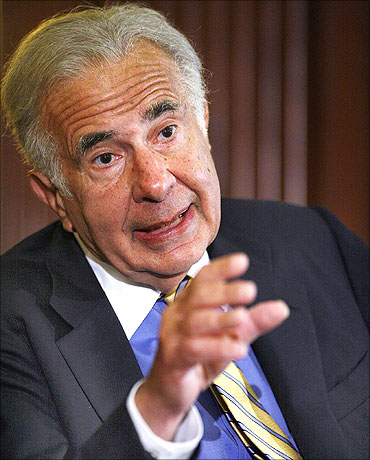
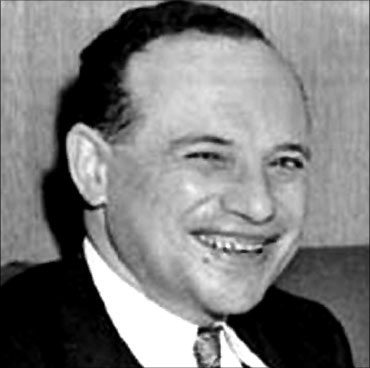

article